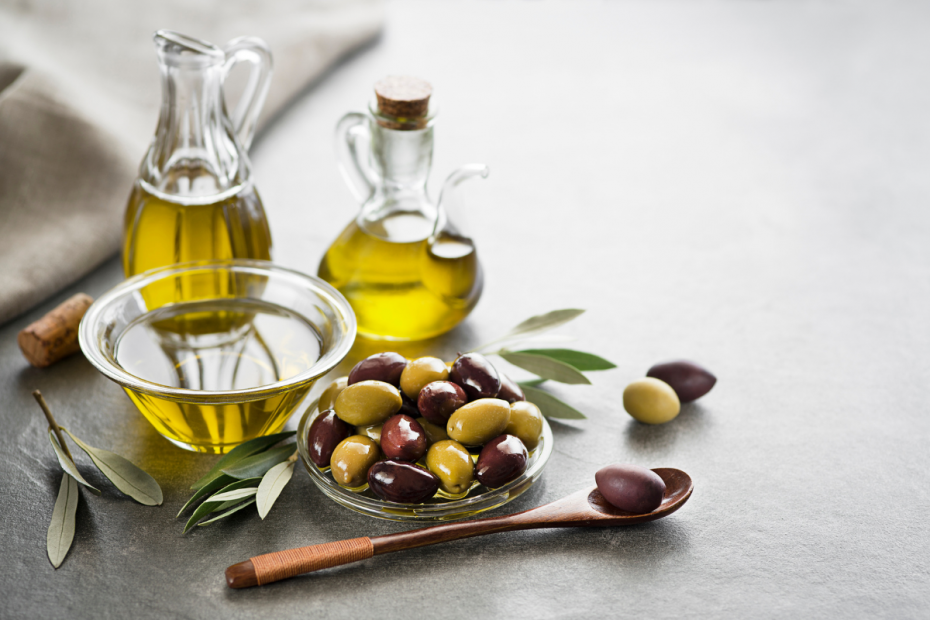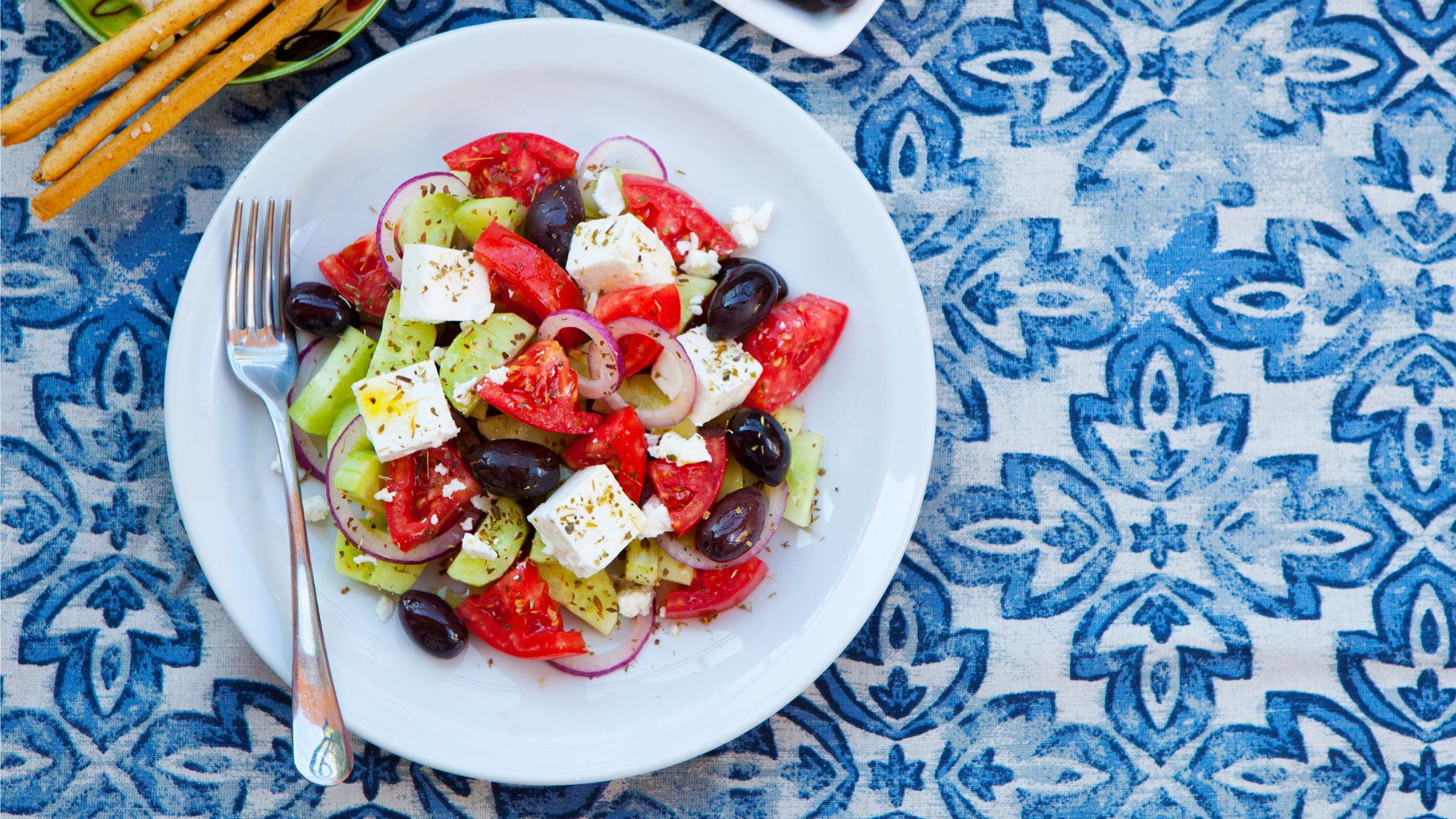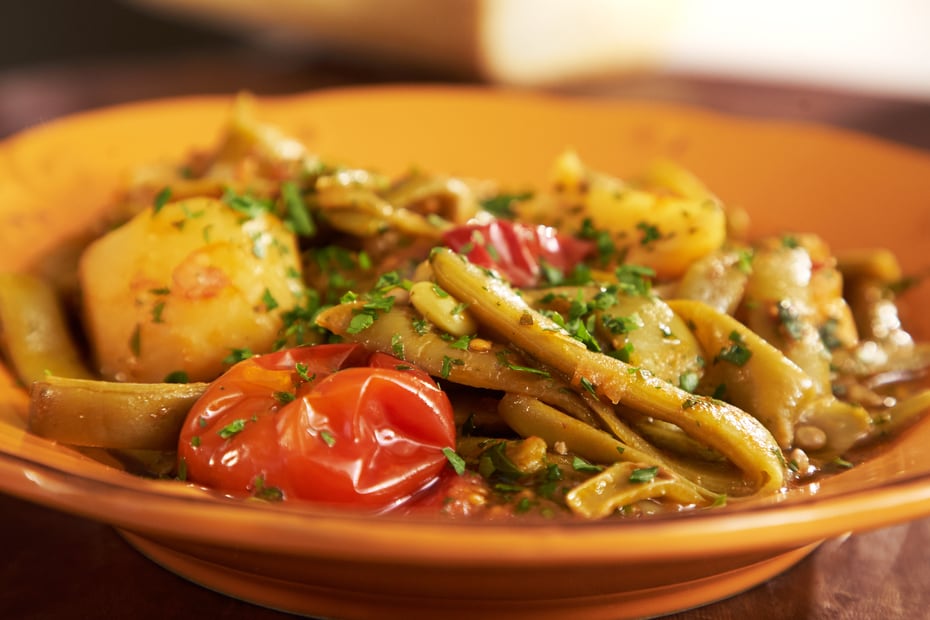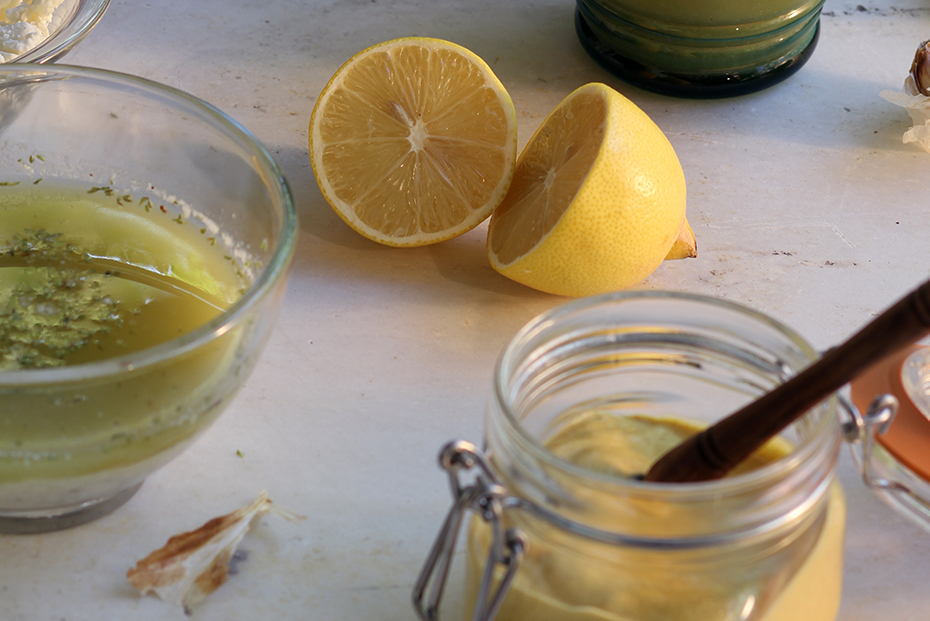Summer Cooking and Greek olive oil have a natural sympatico!
Greek cooking is all about fruits and vegetables, which grow prolifically in Greece’s sunny, hot climate. And since raw ingredients are so delicious here, Greek cooking focuses on letting their innate quality shine through simple recipes and preparations. Essentially, the idea here is that food should be served as close to its natural state as possible, without leaning on difficult techniques or fancy sauces.
And extra virgin Greek olive oil turns out to be the best way to prepare a bounty of summer produce, while still keeping things simple! During summer, there are 3 main recipes where good olive oil is an absolute must. There’s the classic Greek salad, of course, but also ladera (which relies heavily on olive oil, before, during, and after the cooking process) and ladolemono. Read on to find out how olive oil is used in these categories in Greek cooking during the summer, and learn how you can incorporate them into your home kitchen!
Greek Salad
It’s easy to understand how this class combination of tomatoes, onions, cucumbers, peppers, olives, feta and olive oil make for one of the most iconic dishes in the world. But there are a couple of secrets to a good Greek salad: First, make it in season, when tomatoes are ripest, and second, use good quality sheep’s milk or sheep and goat’s milk feta. But third, make sure you give it a good drizzle with extra virgin Greek olive oil, which will not only serve as a dressing but also as a conduit for all the salad’s many flavors. The more olive oil you use, the better: one of the best parts of a well-executed Greek salad comes at the very end, when you soak up all the tomato-oregano-feta infused EVOO at the bottom of the bowl.
Ladera
There is a whole category of dishes in Greece named for olive oil. They are known as “ladera,” which means “oiled.” Μany of these dishes are eaten during periods of fasting, before certain religious holidays, but these dishes are not limited to that time of year. They actually include many summer specialties based on fresh produce, most notably, the summer classic Green Beans Yiahni. One of the absolute classics of Greek summer, but also delicious year-round, this is an easy, luscious casserole of fresh beans slowly cooked in olive oil, with tomatoes, onions, potatoes and herbs. All you need is a chunk of feta and a bit of good bread to complete this wonderful vegetarian main course.
In this dish, olive oil is used as a cooking fat, but it’s also the perfect flavoring agent poured raw over the final dish, a sort of liquid garnish. When it comes to ladera, it’s important to remember a tip my husband’s grandmother used to give me about making these dishes perfectly: You’ll know that it’s done when the only liquid left in the pot is the “ladaki,” or the little bit of olive oil that is basically the essence of everything once it’s cooked together, after everything has been absorbed!
Ladolemono
EVOO is great on its own, but if you want to take it to an entirely new level, all you have to do is mix it with an acid! You can make ladolemono, a combination of EVOO and lemon juice, or ladoxido, a combination of EVOO with red wine or vinegar. Sometimes you can even toss in a bit of mustard and honey for an extra special dressing. But no matter what extras you add, the basic olive oil-lemon combination brings acid into the equation, creating a mouth-watering dressing that is made for grilled fish! You simply whisk together lemon juice with a little olive oil until it’s emulsified, and drizzle over your dish! It’s truly the distillation of everything that’s good, Greek, and delicious.









